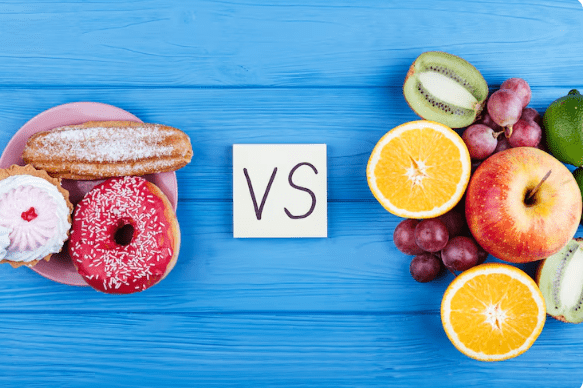Almost like two opposing characters in the ongoing drama of health trends, the Mediterranean Diet and the Master Cleanse stand in stark contrast to one another. On the one hand, there is a traditional method that is ingrained in coastal communities’ daily lives and is praised for striking a striking balance between taste and nutrition. On the other hand, a drastic regimen that promises quick change but only provides a brief narrative before reality sets in.

The inclusiveness of the Mediterranean Diet is one of its strongest points. It encourages variety rather than deprivation. The combination of fruits, vegetables, omega-3-rich fish, whole grains, and that golden elixir—olive oil—feels natural but is incredibly effective at promoting health. Actors like Penélope Cruz have attributed it to keeping their energy levels up during rigorous filming schedules, while athletes like Tom Brady have adopted its principles to maintain performance. Its success depends on the harmonious interactions between nutrients rather than a single secret ingredient, much like a choir whose beauty only becomes apparent when each member contributes.
Mediterranean Diet vs Master Cleanse – Key Comparison
| Aspect | Mediterranean Diet | Master Cleanse |
|---|---|---|
| Core Philosophy | Balanced eating with nutrient-rich whole foods | Short-term liquid detox with strict limitations |
| Primary Foods | Vegetables, fruits, fish, olive oil, nuts, whole grains | Lemon drink, maple syrup, cayenne, herbal tea |
| Duration | Lifelong approach | 10–40 days |
| Health Benefits | Heart health, longevity, anti-inflammatory effects | Rapid weight loss, perceived detox benefits |
| Risks | Few when balanced properly | Nutrient deficiencies, fatigue, rebound weight gain |
| Scientific Backing | Strong, evidence-based | Minimal to none |
| Celebrity Examples | Penélope Cruz, Tom Brady | Beyoncé (short-term prep) |
| Sustainability | High | Very low |
| Official Link | health.harvard.edu |
The complete opposite is the Master Cleanse. It flourishes when complexity is reduced to a single, piercing note. For as long as forty days, a beverage consisting of lemon juice, maple syrup, cayenne pepper, and water serves as the only source of nutrition. In the short term, it produces remarkably noticeable changes, as demonstrated by Beyoncé’s well-known use of it to rapidly lose weight for a role.
However, as nutritionists usually stress, energy levels can suffer significantly and what is quickly lost is often quickly regained. According to renowned dietitian Kathleen Zelman, the idea of “detoxing” in this manner lacks scientific support because your liver and kidneys are already very clear about their function and can process toxins without the need for such drastic measures.
These two diets reflect deeper cultural values when viewed through a societal lens. Patience, sustainability, and an emphasis on long-term vitality are all in line with the Mediterranean diet. It reflects farm-to-table dining, the slow food movement, and the rising demand for produce that is grown in season. Perfect for a high-profile event, a photo shoot, or a quick reset following a period of indulgence, the Master Cleanse embodies the allure of immediacy.
Research-driven improvements to the Mediterranean diet in recent years have significantly increased its plant-based protein content, reduced sodium intake, and encouraged mindful eating. The Master Cleanse, on the other hand, hasn’t changed much; its allure is based more on the dramatic effect of change than on its nutritional value. There is a clear distinction in sustainability; one can be sustained for decades while the other can only be sustained for a few weeks without experiencing severe discomfort.
This divide is highlighted by celebrities themselves. Mediterranean-style adopters frequently talk about cooking at home, sharing meals with loved ones, and enjoying food—elements that promote both physical and emotional well-being. People who use the Master Cleanse typically do so as a planned, time-bound strategy, understanding that it’s not a long-term fix.
The implications are instructive in the context of public health. The prevalence of heart disease, type 2 diabetes, and some types of cancer, which put a strain on healthcare systems and shorten lives, could be considerably decreased by widespread adoption of the Mediterranean diet. In contrast, the Master Cleanse only serves as a brief break from unhealthy eating patterns before most people resume their previous behaviors, offering little in the way of disease prevention.
The decision a person makes between the two is based on their priorities. Though at the expense of vitality, muscle mass, and possibly overall health, the Master Cleanse offers a rapid, noticeable transformation if that’s the goal, possibly for a wedding or performance. The Mediterranean Diet is a particularly advantageous route if the objective is a richer, more balanced life with advantages that go well beyond appearances.
It’s likely that the Mediterranean Diet will continue to gain popularity in the years to come, not as a fad but as a cultural norm, as discussions about health move away from repair and toward prevention. It provides a motivating reminder that, without going to extremes, food can be both enjoyable and incredibly healthy.
